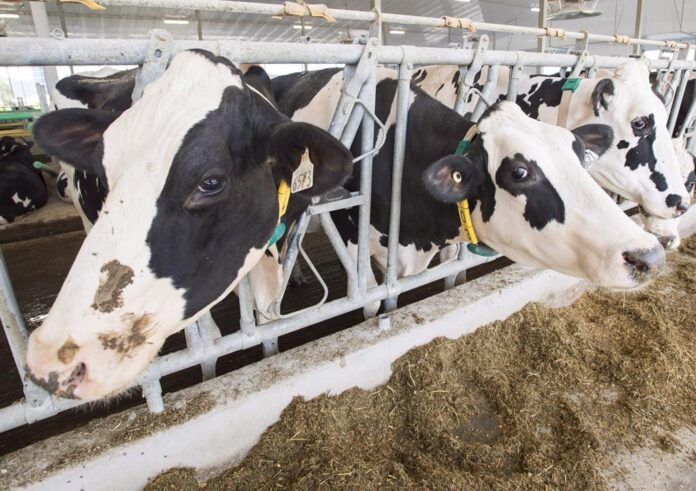“Amidst a growing outbreak of avian flu in U.S. dairy cattle, the Canadian government is taking proactive measures to expand its surveillance program. This move comes in response to the detection of fragments of highly pathogenic avian influenza in pasteurized milk sold in the U.S. The health agencies in Canada have announced that lactating dairy cattle being imported from the United States will now require negative tests, with enhanced testing of milk at the retail level to detect viral fragments.”
Sub-heading: Ensuring Safety in Dairy Industry
“As part of the enhanced industry biosecurity efforts, voluntary testing will also be available for cows that do not exhibit clinical signs of HPAI. The U.S. Food and Drug Administration reported that around 20% of milk samples across the country tested positive for avian flu fragments. Despite this, the Canadian statement reassures consumers that commercially sold milk and milk products are safe to consume, as pasteurization effectively inactivates the virus causing HPAI, even in the presence of viral fragments.”
Sub-heading: Collaborative Efforts for Public Safety
“The statement emphasizes that while the risk of transmission to humans remains low, the Canadian government, provinces, territories, and U.S. counterparts are working together to monitor, prepare, and respond to the situation. Immediate actions will be taken if any food safety or animal health risks are identified to protect Canada’s food supply and livestock. The collective goal is to safeguard Canada’s cattle and ensure the health of the population.”
In conclusion, the collaboration between governments, health agencies, and industry stakeholders exemplifies a united front in addressing and mitigating the risks posed by avian flu in the dairy industry. By prioritizing surveillance, testing, and biosecurity measures, Canada is taking proactive steps to safeguard public health and maintain the integrity of the food supply chain. It is essential for all stakeholders to remain vigilant, adaptable, and committed to addressing emerging threats for the well-being of both animals and humans.”
Reference















